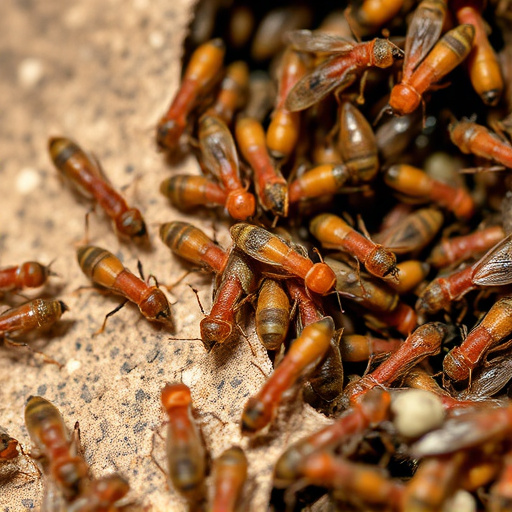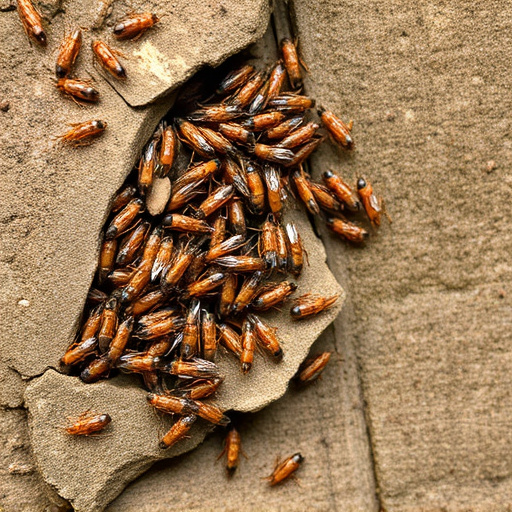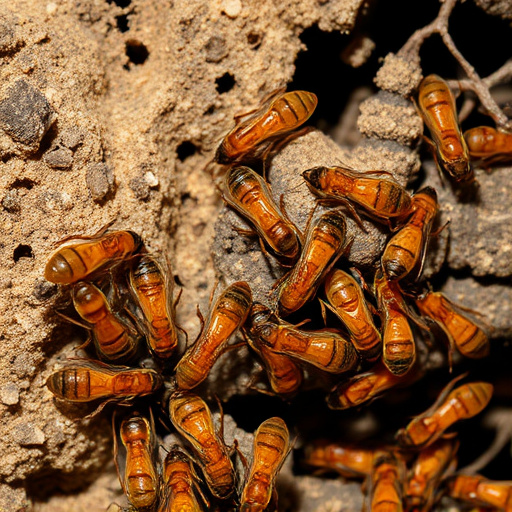Termites in Tucson pose year-round risks, with Western Subterranean Termite swarms in spring/summer. To protect homes, Tucson residents should implement seasonal strategies including: regular (annual) inspections, addressing moisture, tailored professional treatments, and proactive measures like buffer zones, trimming trees, and fixing leaks. Early detection through inspections is key; signs of infestation include mud tubes, hollow wood, bulging walls, and sticky doors/windows. Natural remedies like beneficial insects and plant repellents also help. The optimal time for professional termite control Tucson services is spring-fall when termites are most active; prompt action upon noticing signs ensures effective eradication and long-term prevention.
In the warm, humid climate of Tucson, seasonal changes significantly impact termite activity. Understanding these pests’ behavior is key to effective termite control Tucson. This comprehensive guide delves into the world of seasonal termite prevention, offering insights on identifying infestation signs and natural remedies. Learn about the critical role of regular inspections in maintaining a termite-free home and when to trust professional termite control services for lasting protection.
- Understanding Termites and Their Seasonal Behavior in Tucson
- Identifying Signs of Termite Infestation
- Effective Termite Prevention Strategies for Your Home
- Role of Regular Inspections in Termite Control Tucson
- Natural Remedies and DIY Tips for Seasonal Termite Management
- When to Call Professional Termite Control Services
Understanding Termites and Their Seasonal Behavior in Tucson

In Tucson, termites are a year-round concern for property owners, but their activity peaks during specific seasons. Understanding their behavior is crucial for effective termite control Tucson. The most common species in this region, such as the Western Subterranean Termite, tend to be more active in the warmer months when wood moisture levels rise, and new vegetation provides easy access to food sources. During spring and summer, you’ll often see swarms of winged termites (alates) emerging from established colonies to start new nests.
Termites are highly adaptive and can exploit moist areas created by recent rains or inadequate drainage. In fall and winter, they may slow down their activity as temperatures drop but don’t cease entirely. This makes seasonal termite prevention a constant effort for Tucson residents. Regular inspections, addressing moisture issues, and professional treatments tailored to the local species and climate are key strategies in protecting your property from these persistent pests.
Identifying Signs of Termite Infestation

Termites can cause significant damage to homes and properties, so identifying signs of an infestation early is crucial for effective termite control Tucson. One of the first indicators is noticeable mud tubes or “trails” on walls, foundations, or wooden structures. These tubes are built by termites as they travel between their colonies and food sources, often visible along basement walls or in crawl spaces. Another sign to look out for is wood that sounds hollow when tapped, which could indicate termite damage.
Property owners should also watch out for weakened or crumbling wood, bulging walls, or doors and windows that stick. If you notice any of these signs, it’s essential to contact professional termite control services in Tucson promptly. They can conduct thorough inspections to confirm the presence of termites and suggest tailored solutions to mitigate and prevent future infestations.
Effective Termite Prevention Strategies for Your Home

Termites can cause significant damage to homes, so implementing effective termite prevention strategies is crucial for Tucson property owners. Regular inspections are key; hiring a professional to inspect your home twice annually can help identify any signs of an existing or potential infestation early on. During these inspections, experts look for mud tubes, which termites create as they tunnel through wood, as well as any weakened or damaged areas where termites might be attracted.
In addition to regular inspections, there are several other termite control Tucson methods you can employ. Maintaining a 1-2 foot buffer zone between your home and any woody vegetation is essential, as termites are attracted to moisture and wood. Regularly trimming trees and shrubs away from your house, fixing leaky faucets or pipes, and ensuring proper drainage around the foundation helps eliminate potential attractions for these pests. Using termite-resistant materials in construction or repairs, such as treated wood, can also serve as a powerful deterrent.
Role of Regular Inspections in Termite Control Tucson

Regular inspections are a cornerstone of effective termite control in Tucson. These thorough assessments allow for early detection of any signs of termite activity, which is crucial as immediate action can prevent minor issues from escalating into major infestations. Professional inspectors utilize advanced techniques and knowledge of local termite species to identify even the subtlest indications of infestation, ensuring your Tucson property stays protected.
By scheduling regular inspections throughout the year, homeowners can maintain a proactive approach to termite control. This strategy not only saves on costly repairs but also offers peace of mind, knowing that their investment is safeguarded. In the world of termite control Tucson, prevention is key, and regular inspections are the first line of defense against these persistent pests.
Natural Remedies and DIY Tips for Seasonal Termite Management

In the fight against termites, there are several natural remedies and DIY tips that residents of Tucson can employ to manage these pests effectively during the seasonal changes. One eco-friendly approach involves utilizing beneficial insects like predator bugs, such as spiders and ants, which feed on termite larvae. Introducing these natural predators into your yard can disrupt the termite colony’s growth. Additionally, certain plants act as natural repellents; for instance, lemongrass, lavender, and mint contain compounds that termites find unpleasant, making them excellent organic barriers around your property.
DIY enthusiasts can also take proactive measures like maintaining proper drainage around their homes to prevent moisture build-up, which attracts termites. Regular inspections are key; checking for mud tubes (termite highways) and wooden damage will help identify infestations early. Simple repairs, such as sealing cracks and gaps in foundations or walls, can make your home less inviting to these pests. Termite control in Tucson doesn’t always require professional services; these natural remedies and simple precautions can significantly contribute to seasonal termite management.
When to Call Professional Termite Control Services

In Tucson, the best time to call professional termite control services is during the warmer months, particularly from spring through fall. This is when termites are most active and reproduction rates peak, increasing the likelihood of infestations. If you notice signs of a termite problem, such as wood damage, small holes in walls or floors, or visible swarms of termites, it’s crucial to act fast.
Professional termite control experts in Tucson have the necessary equipment and expertise to identify and eliminate existing infestations effectively. They can also provide preventive treatments tailored to your property, using industry-leading methods and products to safeguard your home against future invasions. Termite control Tucson services are designed to target both visible and hidden termites, ensuring a thorough and lasting solution.
In conclusion, seasonal termite prevention is a crucial aspect of home maintenance in Tucson. By understanding the behavior and identifying signs early, property owners can implement effective strategies like regular inspections and natural remedies. However, for comprehensive protection against these persistent pests, considering professional termite control services in Tucson is often the best course of action, ensuring your home remains secure year-round.
